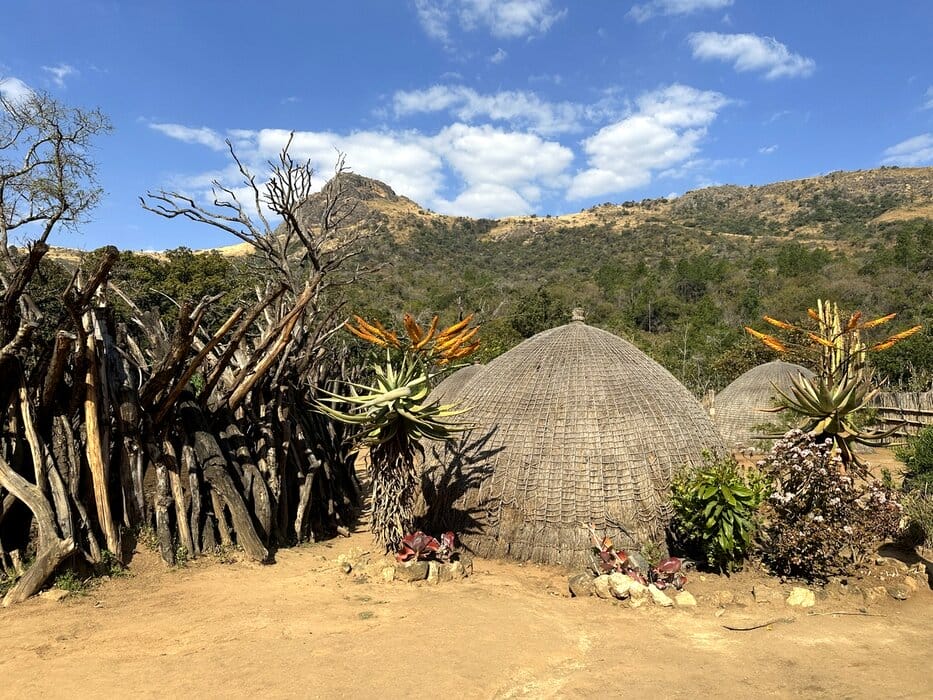
Are you looking for the best things to do in Eswatini? Read about our visit here.
We did a quick border hop to Eswatini. It just didn’t feel right that I’d visited 50 other countries but not one that was right on my doorstep. My husband had been there a few times, but my children and I hadn’t so we set off from Johannesburg and crossed the border at the Ngwenya border post, 4 hours away.
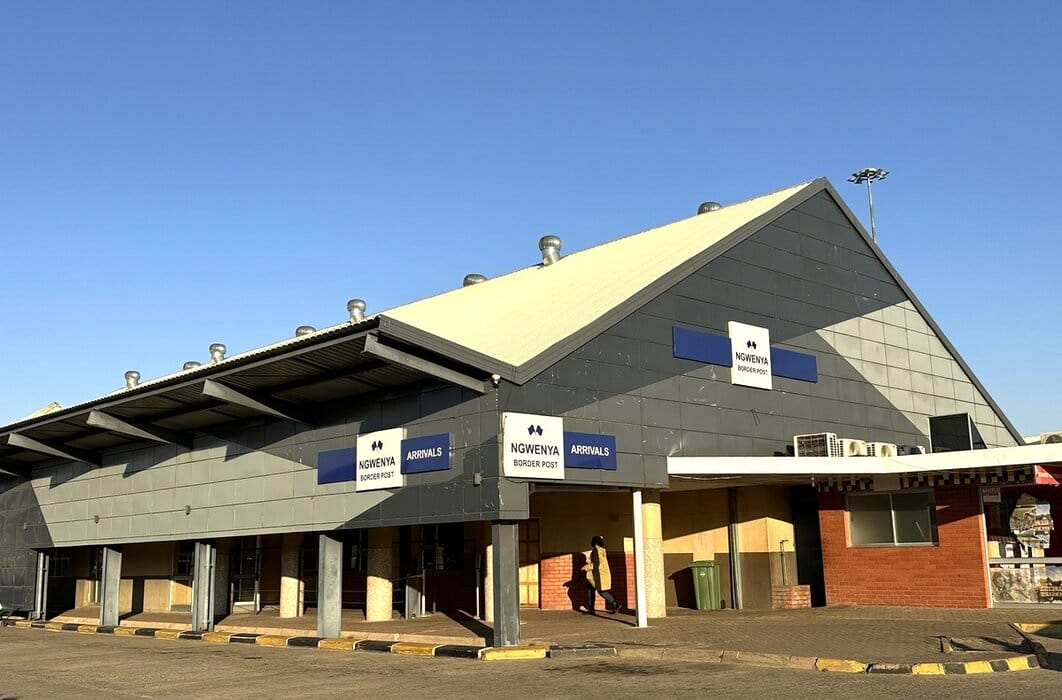
Ngwenya border post
Eswatini is one of the smallest countries in Africa. The landlocked kingdom is bordered by Mozambique in the north-east and the rest of it is surrounded by South Africa. Previously known as the Kingdom of Swaziland, the official name of the country was changed to the Kingdom of Eswatini in 2018 to align with the country's indigenous name and to avoid confusion with Switzerland, which often happened in international settings.
Despite its size, Eswatini has 2 capitals–Mbabane is the administrative capital and Lobamba is the legislative capital.
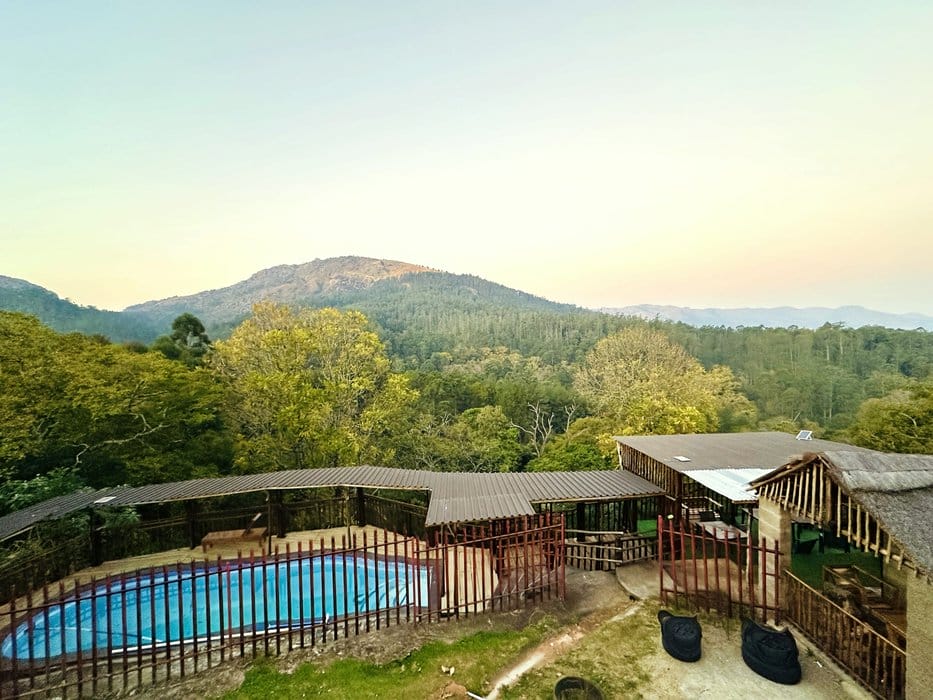
View from our apartment
The road we took via Middelburg and Carolina was good. The main roads in Eswatini are also good tarred roads. However, the roads to attractions in rural areas may be dirt/gravel roads.
We travelled there on a Tuesday and breezed through the border on the South African side. The Eswatini side took a bit longer as there were more people there. Our passports were stamped on both sides and we had to pay R100 for our vehicle to cross over. Our trunk was checked and then we were in Eswatini. When we returned on Friday, the border was much busier on both sides.
At first glance, Eswatini looked a lot like South Africa, but as we ventured further in, it became more mountainous. We stayed at a three-bedroom apartment just 20 minutes from the border. It was spacious and comfortable and had an amazing view of the mountains covered with forests.
10 minutes after we got there, we were struck by load shedding which was first implemented in Eswatini two weeks prior to our visit. Fortunately, it lasted only 1.5 hours in the evenings and 1 hour in the mornings, not as long as in South Africa. (If you're not familiar with the term, load-shedding refers to scheduled power outages designed to prevent overloading the grid.)
We spent two days exploring the country during which we visited its major cities, and main attractions.

Mantenga Cultural Village (See Execution Rock in the background)
Mantenga Cultural Village, in Mlilwane Wildlife Sanctuary, consists of a living museum where you can tour a traditional homestead, learn about local customs, and watch dance performances from their international troupe. There are two performances a day, one in the morning and one in the afternoon. We got there just after the morning show, but we were in luck as a school group had just arrived, and another show was held for them, so we got to experience it. The final segment was interactive with many audience members participating.
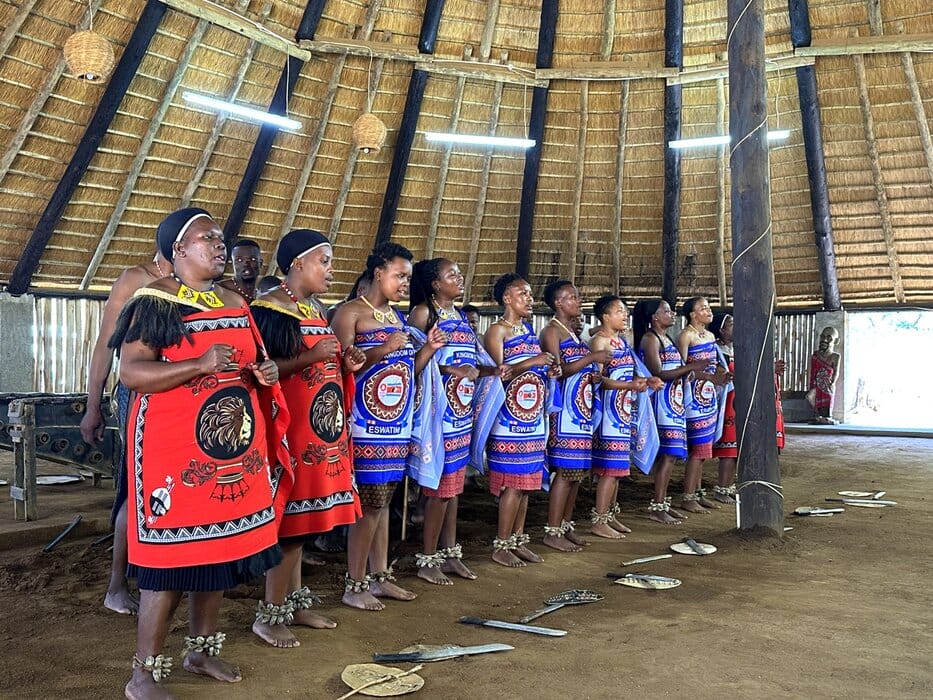
Mantenga Cultural Village Dance
Thereafter, we did a tour of the recreated 19th-century village. It was interesting and we learnt a lot about Swazi culture. The village lies in the shadow of Nyonyane Mountain with its granite peak known as Execution Rock. The rock has a dark history as this is where criminals were executed in the past. After being marched to the summit, they were given a choice: jump with dignity or be forced off with spears.
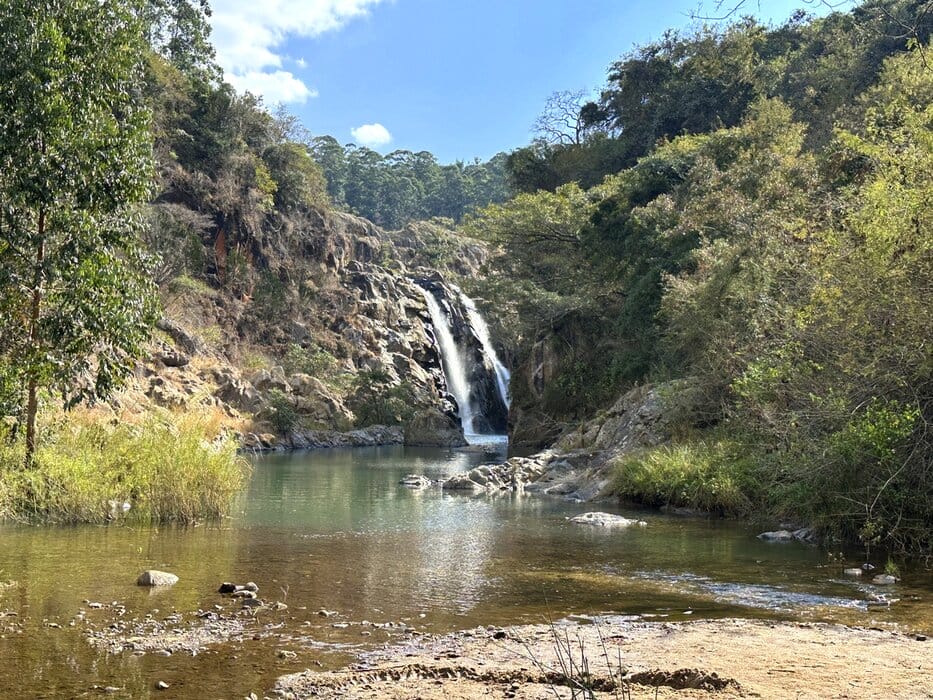
Mantenga Waterfall
We ended our visit with a drive to the waterfall, where warning signs cautioned us to beware of crocodiles.
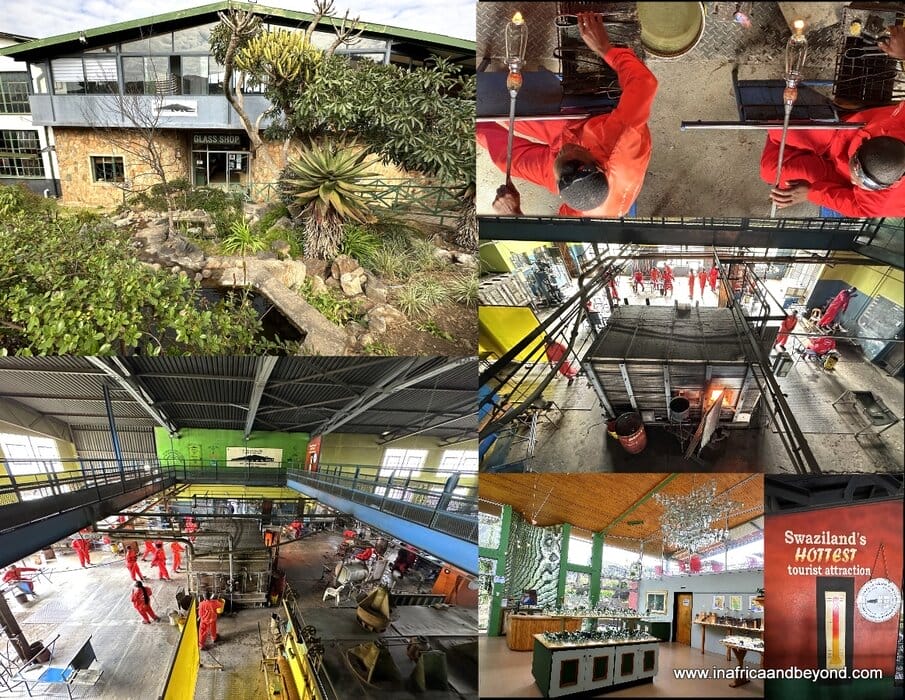
Ngwenya Glass Factory
Just a short drive from the Ngwenya border, this eco-friendly glass-blowing factory bills itself as Swaziland’s hottest attraction, and it literally is. We entered through the storefront which sells stunning glass items made in-house. The store leads to an elevated observation deck from where one can watch craftsmen transform recycled glass into exquisite figurines, vases, and tableware using fire. The factory is set in a landscaped garden, home to many peacocks, and there are other stores on the premises too, including a chocolate shop.
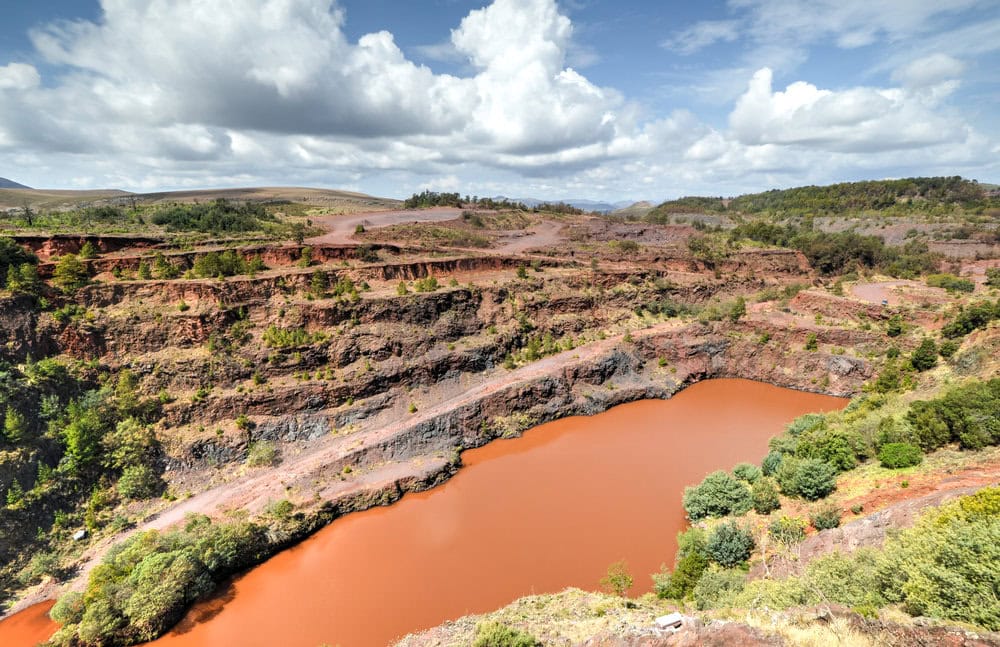
Ngwenya Old Mine
Near the glass factory, is the Ngwenya Old Mine, one of the oldest mines in the world, which dates back over 43,000 years. Early humans extracted minerals from the mine, which were used as red ochre pigment in rock art, cosmetics, and ritual body paint.
The mine is on UNESCO’s Tentative List and may become the country’s first official World Heritage Site. It is now part of a nature reserve and mining is prohibited. Visitors can take guided tours to the mining areas including Lion Cavern, the oldest part of the mine, and learn about the site’s archaeological, cultural, and industrial significance.
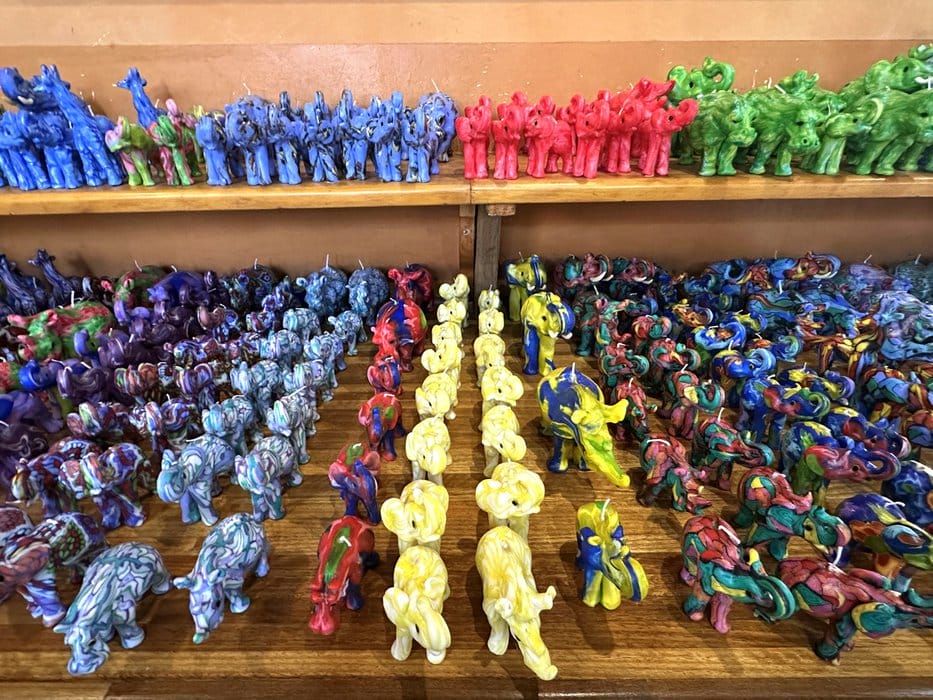
Animal candles at Swazi Candles
This is a workshop in the Malkerns Valley, where skilled artisans craft colourful, decorative candles using centuries-old techniques. Visitors can watch the candle-making process and browse a variety of handmade products, from animal-shaped candles to batik textiles and wood carvings. We saw a wax elephant being made in 5 minutes, which was impressive. The centre is surrounded by other craft outlets. We purchased some soaps and candles, and some Black Mamba sauce, which is made in Eswatini.
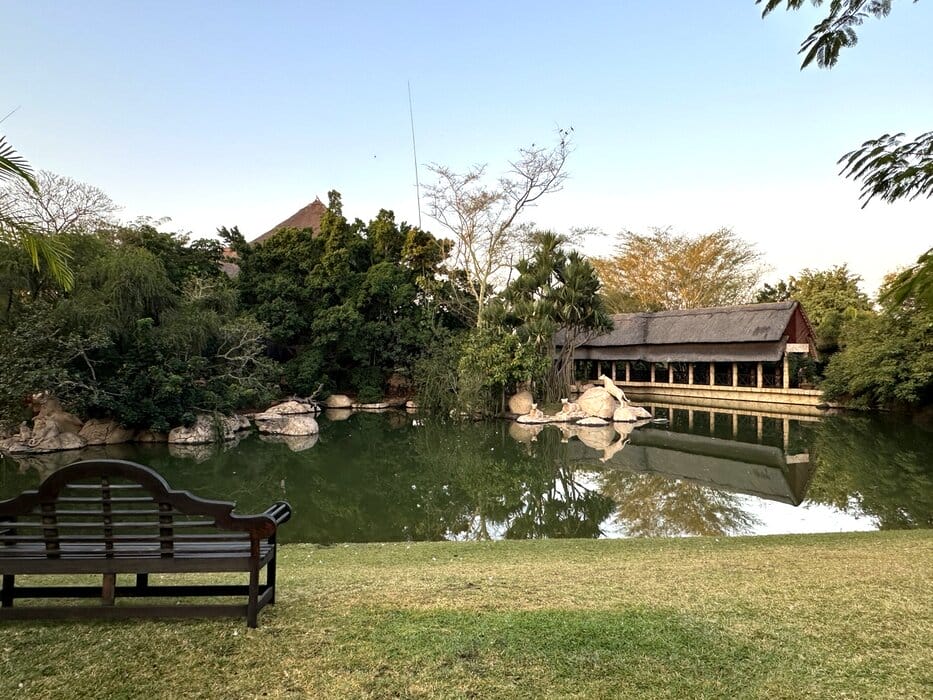
Summerfield Botanical Gardens
This is a lush oasis with manicured gardens, tranquil lakes, and exotic plant collections, where swans glide on the water, and peacocks roam the gardens.
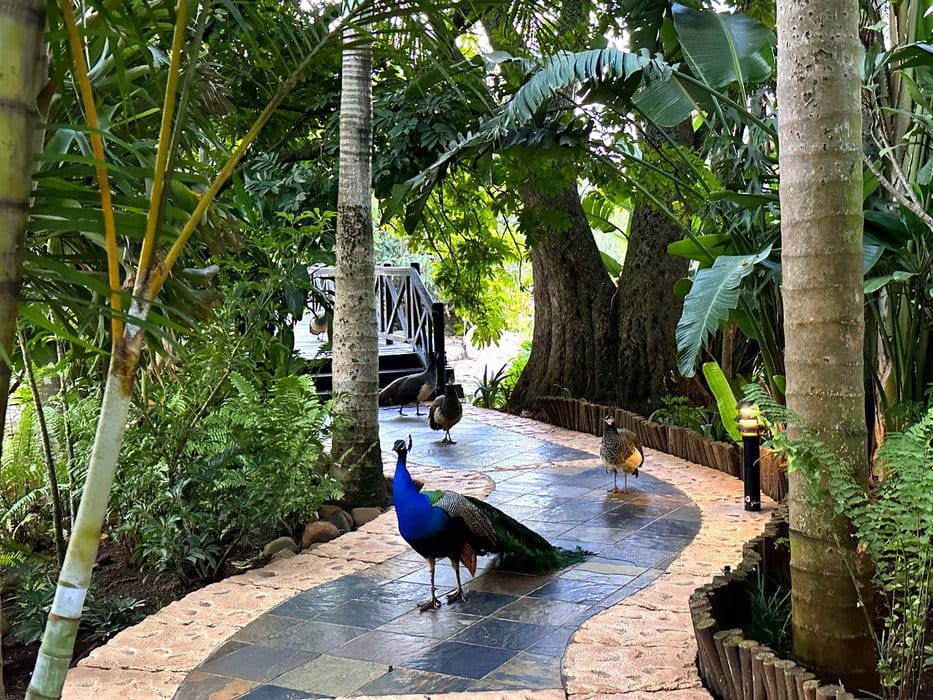
Peacocks at Summerfield Botanical Gardens
Part of an exclusive resort, day visitors are allowed too. We enjoyed sundowners at The Palm Cascades restaurant overlooking the lake.
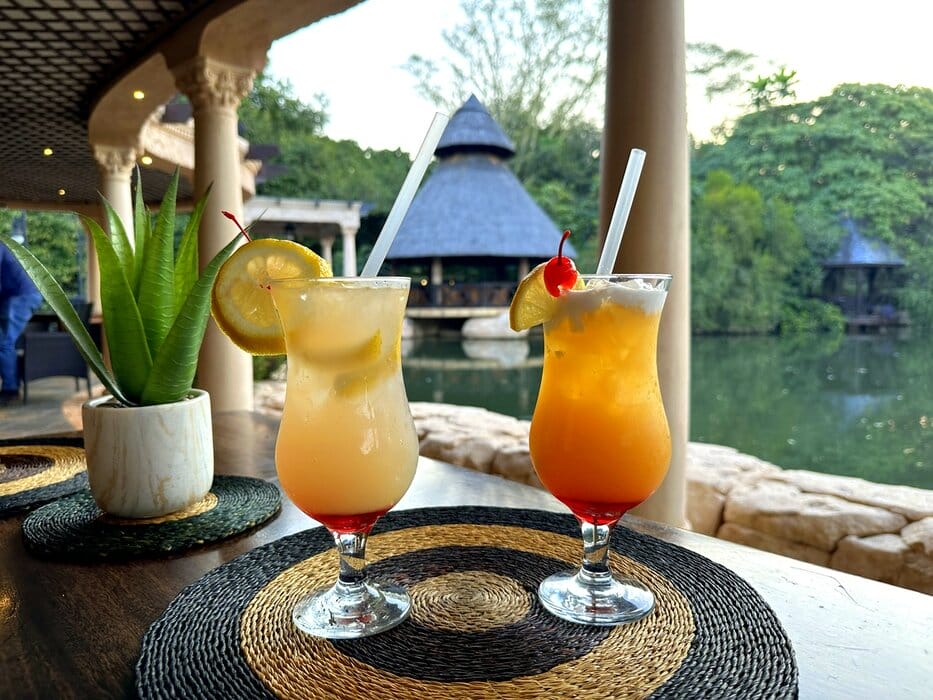
Sundowners at Palm Cascades
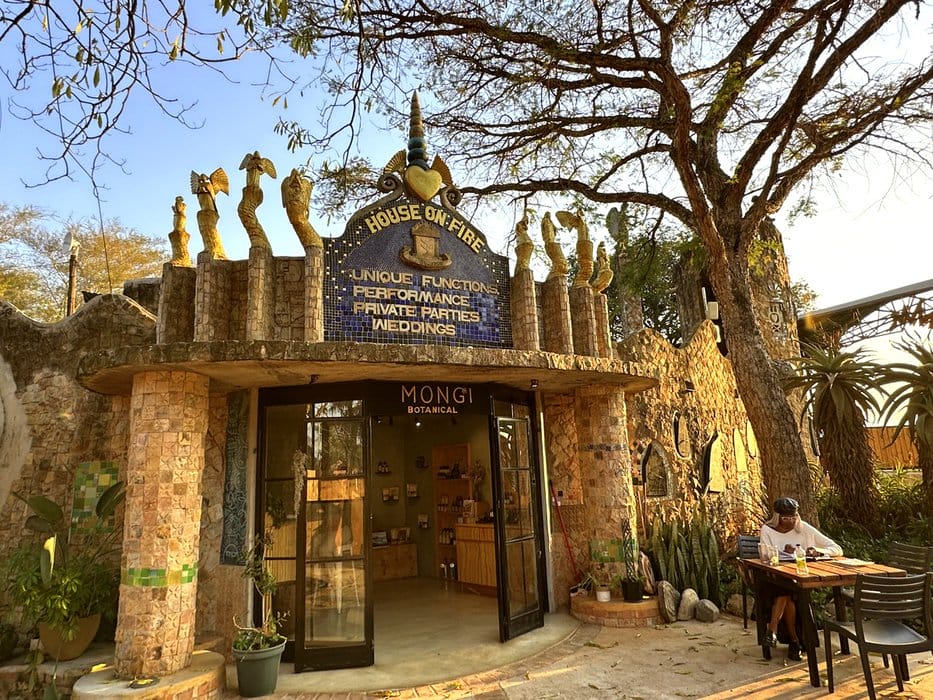
House on Fire
A popular festival venue, House on Fire is famous for its eclectic architecture and vibrant cultural scene. From large-scale music festivals (like the annual MTN Bushfire) to intimate performances, this quirky space is a hub for creativity. It also hosts art studios, quirky sculptures, and a restaurant.
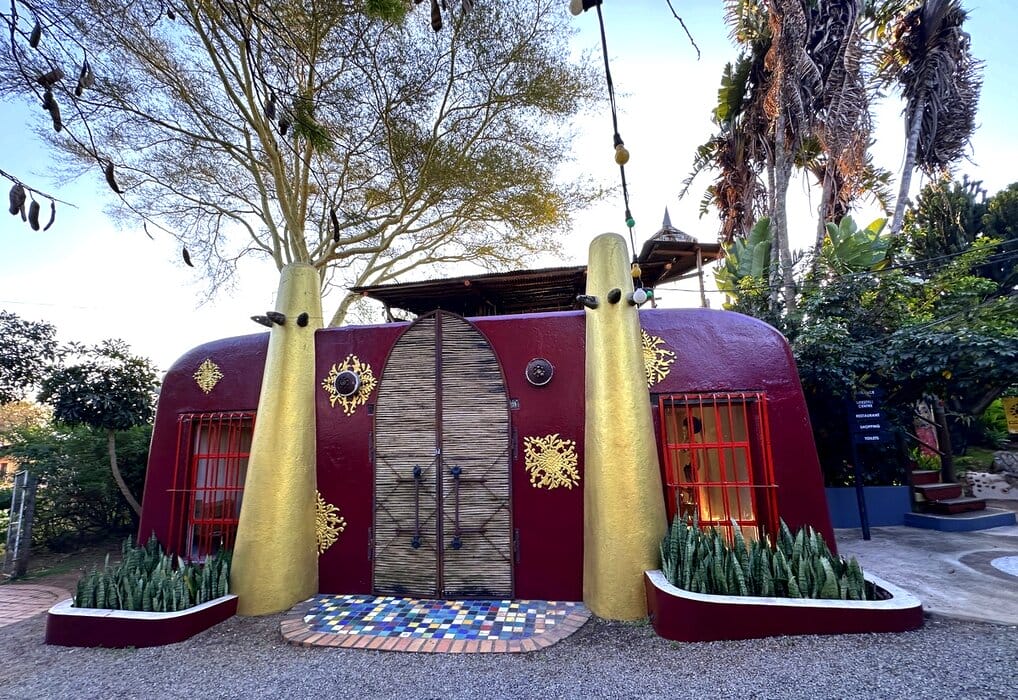
House on Fire
The Malolotja Canopy Tour is set deep within Malolotja Nature Reserve, one of Eswatini’s last untouched mountain wilderness areas. It allows you to glide through the forest canopy via a series of elevated platforms, zipline slides, and a 50-metre suspension bridge that crosses the Majolomba River. As you move from platform to platform, you’re treated to dramatic views of towering cliff faces, lush forest canopies, and the rugged peaks of the Malolotja mountains. You can also spot wildlife and rare bird species in their natural habitat.

Sibebe Rock - cc DepostiPhotos
Sibebe Rock, just north of Mbabane, is one of Eswatini’s most iconic natural landmarks and a geological marvel. This immense granite dome is around three billion years old, making it one of the oldest geological features on Earth. It is the world’s largest exposed granite dome and the second-largest monolithic rock after Australia’s Uluru. Hiking trails wind through sculpted boulders, granite slopes, caves, and hidden forest clefts, with panoramic vistas rewarding those who reach the summit.
Other than Sibebe, Eswatini has an extensive array of other hiking trails, ranging from gentle walks to challenging multi-day treks. Many reserves allow for self-guided hikes, letting visitors explore at their own pace.

Hlane Royal National Park
Wildlife in Eswatini is both abundant and accessible, thanks to the country’s 17 protected areas and diverse habitats. Some, like Hlane Royal National Park, boast the Big Five. However, we didn’t visit any, as it’s something we do often in South Africa.
Here's a quick recap of our visit.
Good to know
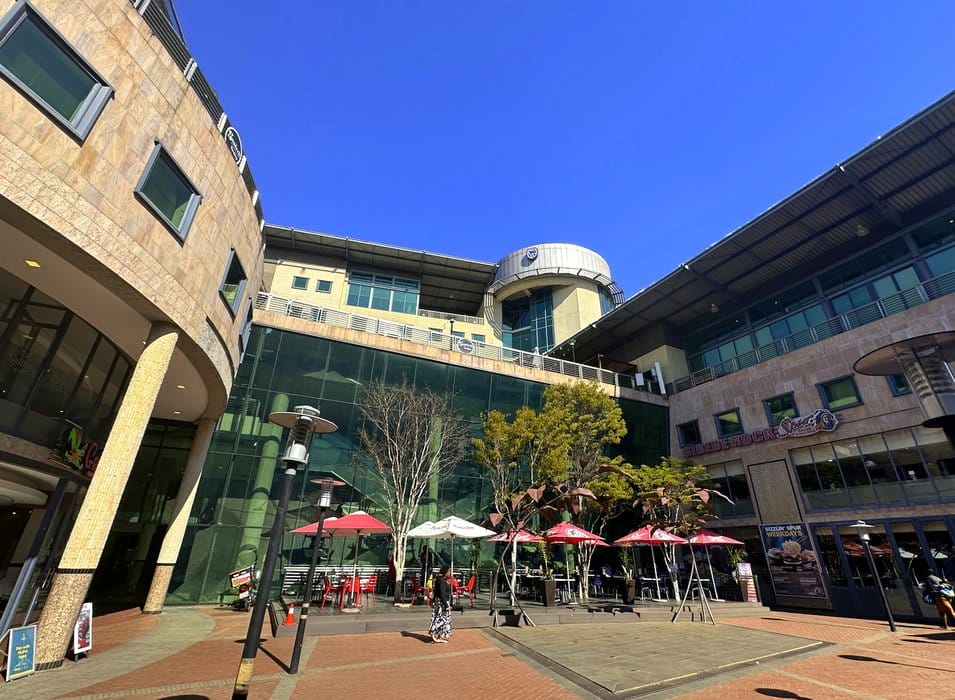
Swazi Plaza


Sara Essop is a travel blogger and writer based in South Africa. She writes about family travel and experiences around the world. Although she has been to 50 countries thus far, she especially loves showcasing her beautiful country and is a certified South Africa Specialist.
I had never heard of this country by its new name but I can understand how its old name could be confused with Switzerland. What a beautiful country. The photographs of the landscape and mountains are spectacular. Did you buy any crafts? I bet your kids wanted candles.
We bought candles, scented soaps, marmalade and sauces - all locally made!
Love the blog and pictures, some great information on a country I knew very little about. I agree with you, being that close, you had to go visit. I would too if I was in the area.
What a fabulous introduction to Eswatini, which I'd only briefly heard of by its previous name, but didn't know really anything about. Thanks for including a bit of a background and history around it. The crafts look amazing, something I'd definitely want to bring home - some beautiful glass blown items and candles. I did, however, have to look up what you meant by load shedding - not something I'm familiar with
Love your photos. I did not know Swaziland changed its name. This is fascinating. We have been to South Africa, wish we had visited here. Maybe someday...
You should make another trip to South Africa to visit Eswatini and Lesotho - which is surrounded by South Africa!
I had never heard of Eswatini before, so this article was really eye-opening for me. I loved learning about its culture, nature and unique attractions. It sounds like a beautiful and fascinating place to visit!
Many people haven't heard of Eswatini, especially since it changed it's name!
I've always wondered what Eswatini is like. What language do they speak there?
The local language is Siswati, but everyone we dealt with spoke English too.